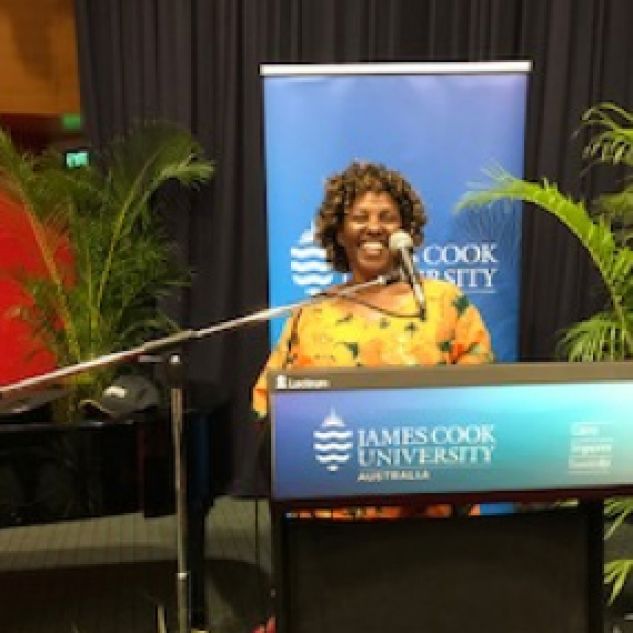“Every woman in Africa does business”
Every year, thousands of African women migrate with their families to Australia in pursuit of a better life. Starting their own small businesses can be a way for them to overcome employment and education challenges and build a brighter future.
Kenyan-born Jane Njaramba calls these women Migrant African Women Entrepreneurs, or MAWEs (mow-ees). Exuberantly passionate about empowering disadvantaged women, Jane’s experience as a MAWE herself inspired the topic of her PhD at JCU Cairns.


“My research interest has a particular focus on the experiences of migrant women entrepreneurs in small business,” Jane says. After interviewing almost every female African small business owner in North Queensland—more than 100 in total—Jane quickly identified that the most prominent challenge MAWEs face is the lack of jobs available to migrant and refugee women.
“If they can’t get a job, what every African woman falls back on is business," Jane says. "Every woman in Africa does business."
These resourceful women will do any work they can, from cleaning to night shifts, to save enough money to start a business. They rely heavily upon each other for community and financial support.
“They will get into groups and help each other out through a ‘merry-go-round’ system. Every two weeks, when their Centrelink payments come through, they will all give one woman a percentage of their payment to help them establish their business.”
Support + education = overcoming barriers
Once they have established their own business, MAWEs will hire other African women and teach them English and other essential business skills to continue the cycle.
Businesses run by MAWEs include hair salons, catering companies, clothing stores and African goods stores.
Despite their efforts, MAWEs face a barrage of challenges that make running a successful business very difficult.
Language barriers are one of the biggest issues. While some women, like Jane, come to Australia as skilled migrants, others come as refugees from war-torn countries like Somalia, Sudan and the Congo.
“These women have never been to school,” Jane says. “They don’t know a lot of English. Because English is the only mode of communication in Australia, it’s very hard for them to get jobs.”
Further difficulties MAWEs have found include gender and racial discrimination in the society.
"Australian communities need to be accepting of migrants. We need to preach how to avoid unconscious bias, need to learn to be aware," Jane says. "People in power need to think about what they can do to support these women and help them integrate into the Australian economy.
"MAWEs are marginalised communities. Entrepreneurship is very much gendered."
Learning how to adapt to a Western business model is also a challenge.
“Financial management is an issue for these women,” Jane says. “Australia is very regulated when it comes to running businesses – you have to do your bookkeeping, you have to do your tax returns, these women aren’t accountants. Some of them don’t even know how to write. They need education and mentorship by businesspeople with these skills.
“An African proverb by Kwegyir-Aggrey says that ‘if you educate a man you educate an individual, but if you educate a woman you educate a family’.”
“I want to illuminate the experiences of these women and improve the future for them.”
Jane Njaramba, JCU PhD student


Jane said she wouldn’t be where she is today without support from family, friends and institutions like JCU Cairns.
“It’s impossible not to succeed at JCU,” she says. “I have been supported by an expert advisory team and exceptional resources and facilities. JCU is a beautiful environment, friendly and welcoming.”
Jane hopes her research will create awareness and recognition of what MAWEs offer to Australian society.
“I couldn’t find anything when I first started researching this topic, especially anything that has taken a feminist approach like I have.
“I want to illuminate the experiences of these women and improve the future for them.”